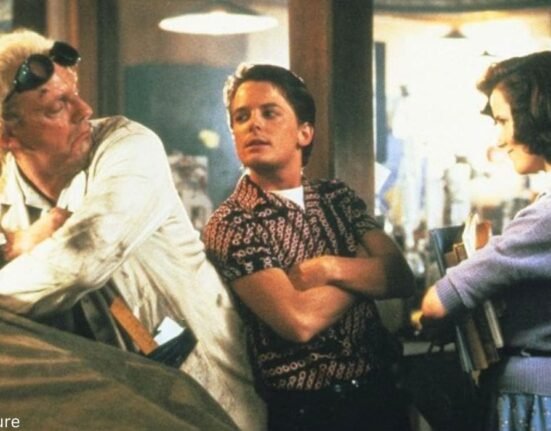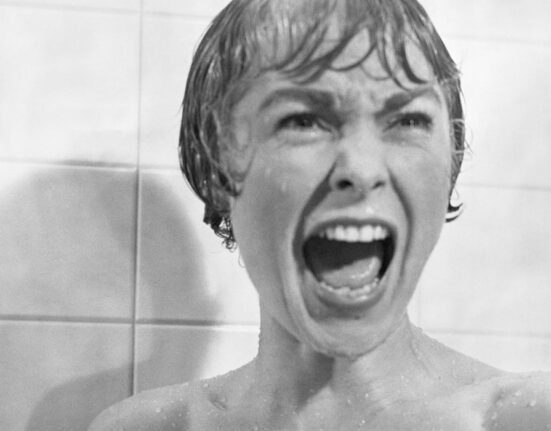Dr. Mangala, Assistant Director at the Schizophrenia Research Foundation (SCARF), couldn’t believe what she was hearing when a patient expressed their reluctance to continue their medication to treat bipolar disorder after watching the 2019 Tamil film Nerkonda Paarvai, in which Bharath Subramaniam (actor Ajith Kumar), who lives with bipolar disorder, mentions that he is unable to focus on his work due to the medication.
Related: 8 Compelling Movies and TV Series That Explore Mental Health Themes
Dr. Mangala mentioned that, while she was surprised to hear her patient’s concerns, it wasn’t the first time a patient had reservations and misconceptions about their medication as a result of watching films that portray mental health and disorders. She added that the same thing happened after “3” was released (a Tamil movie released in 2012 where the protagonist has bipolar disorder). Patients who saw the video were terrified that their mental illnesses would drive them to self-harm, as depicted in the film.
When it comes to portraying mental illness on the big screen, film industries, including Kollywood, have been chastised in the past for failing to depict the complexities of lived experience. This, combined with the failure to accurately portray the nature of the work done by MHPs (mental health professionals), has left practitioners wondering what it will take to steer the much-needed course correction in filmmaking.
Many films have portrayed MHPs in a negative light, even if films like 3 (2012) and Nadunisi Naaygal (2011) paint mental diseases with a broad brush by depicting survivors as antagonists with aggressive personalities or as characters who mistakenly glorify self-harm. In one film, the therapist was portrayed as a manipulator and seducer, while in another; the character was envisioned as comic relief.
Related: The Antics of the Indian Movies – A Psychological View
Hey! Sinamika (2022)
The characterization of a psychologist in the 2022 Tamil love drama, “Hey, Sinamika,” went from being regarded as a seducer to a stalker, and the movie garnered overwhelmingly poor reviews. In the film, Kajal Aggarwal plays Malarvizhi, a marriage counsellor who not only admits to becoming a marriage counsellor after being harassed by men and wanting to prove to the world that men are unfaithful in their relationships but also threatens to take her client Mouna (Aditi Rao Hydari) to court, thus breaching client confidentiality.
Shruthi, who has a master’s degree in clinical psychology and provides adult and adolescent counselling sessions, said that the representation was wrong and immoral on many levels. Forget marriage counselling; the first thing any mental health professional learns is to keep the “personal” out of treatment. She explained that they are obligated to send the client to a different therapist if the issue impacts them personally or if they have a relationship with the client.

“Hey! Sinamika,” directed by debutant Brindha, shows Malarvizhi falling in love with Yaazhan (Dulquer Salmaan), who is her client Mouna’s husband. People are afraid that their weaknesses will be exploited by the MHP, and portrayals like this threaten to destroy the years of work that have gone into normalizing therapy and psychiatric intervention.
According to Shruthi, in families of 2, one member is generally a firm believer in therapy while the other is hesitant. However, she adds that therapists are obligated to do their utmost to provide services to both parties. Malarvizhi befriends Yaazhan in ‘Hey! Sinamika’ to assist Mouna in obtaining divorce grounds. The problematic depiction is far from accurate. She added that even when the therapist believes the clients should separate because of the toxicity, it is ultimately the client’s decision.
Beast (2022)
Vijay’s recent choices of roles, such as a professor speaking out against the unfair treatment of female students at a college in a deleted scene from Master and Bigil, in which his character has a stutter, a speech defect that has been used for comic relief over the years, demonstrate how stars are willing to step out of their comfort zones and experiment with themes that viewers like to see more.
Related: Unleashing the Power of Words: Understanding speech disorders
Vijay plays Veera Raghavan, a former RAW agent who is obliged to save civilians held hostage in a mall by terrorists. After a catastrophic occurrence in which he feels betrayed by his team, he leaves the force. After that, he consults a psychiatrist. Rather than seeing a psychiatrist who would understand Veera’s concerns and focus on his treatment, we see the one who takes him to a North Indian wedding to check out women, referring to them derogatorily as “figures,” because he believes the protagonist is in desperate need of distraction.

The movie does not lay out Veera’s mental health difficulties, said Aisha, who works as a media psychologist and therapist, regarding this representation of a psychiatrist. It could be post-traumatic stress disorder (PTSD) because he feels guilty about the event and is hypervigilant. But no credible psychiatrist would argue that the patient needs a distraction, regardless of the situation.
Nerkonda Paarvai (2019)
The Tamil remake of the iconic Hindi film Pink, which began crucial conversations about consent, was praised as a generally faithful reproduction of the original film, unlike the Tollywood remake, Vakeel Saab. However, the film received backlash when it was released because of its inaccurate portrayal of bipolar disorder.

Dr. Mangala explained that the depiction of bipolar disorder, as well as the therapist treating the patient, is as deceptive as feared. Ajith plays Bharath, a retired lawyer with bipolar disorder who is diagnosed following his wife’s tragic death. His psychiatrist warns him that if he doesn’t take the drugs he’s been prescribed, he’ll end up being more dangerous to others than to himself, reinforcing the negative notion that individuals with mental illnesses are generally unmanageable and aggressive.
Related: BPD Patients Visits Hospital More than Other Mental Disorders
Mangala added that onscreen, people with bipolar disorder or any other mental illness are presented as violent characters. In truth, only a small fraction of people may have this problem, mentioning that bipolar disorder can be caused by a combination of genetics, altered brain anatomy, and other environmental factors.
In a scene where Bharath is maniacally beating up multiple men, his psychiatrist informs the thugs over the phone that Bharath has years of pent-up rage to release, thereby justifying the violence. Shots of Bharath expressing his rage are shown alongside images of a burst water faucet, veering toward glorification. When Bharath mentions his inability to focus on his work due to the drug, the psychiatrist insists that he continue taking it but does not correct his misconceptions.
She mentioned that even if the filmmaker had decided not to portray Ajith as a bipolar disorder patient, the plot would have remained unchanged. Unlike Pink, Nerkonda Paarvai has been deceived. She goes on to say that while all medicines have side effects, portraying them as inherently negative is incorrect because they do benefit patients with mental problems.
Andhagaaram (2022)
Andhagaaram is a non-linear supernatural thriller about a blind government employee in a library, a depressed cricketer, and a psychiatrist with a troubled past. Dr. Indran (Kumar Natarajan) is fatally shot by his mentally ill patient, who then slaughters the former’s entire family. After falling into a coma, Indran loses faith in humanity and plots to murder all of his patients.
Andhaagaram, a genre-bending film, received critical accolades for its unique approach. However, it raises concerns regarding how MHPs are portrayed. Unlike in other Tamil films, the psychiatrist in the movie resumes his practice illegally, with the grave purpose of hurting. Aisha explained that not all psychiatrists are portrayed negatively in this film. Indiran is a psychiatrist who also happens to be an antagonist. Even in Netrikann, the antagonist is a doctor. But, unlike seeking medical treatment, individuals are hesitant to consult MHPs because of bad preconceptions. She mentioned that in the film, Indran uses hypnosis to influence his patients.

Hypnosis is one of many types of therapy, including rational-emotive therapy and expressive art therapy. Contrary to popular assumptions, MHPs cannot fully manage a person with a healthy mind using hypnosis. It’s also been used ethically to encourage patients to make behavioural and cognitive changes. When she enrolled in a hypnotherapy course, her family advised her to be sceptical of instructors who claimed to have control over her mind. Many people ask her to guess what they are thinking when she introduces herself as a psychologist because they believe psychologists are mind readers, which is false. She claims that portrayals like the one above do not assist since they spread misinformation about MHPs at a time when people are still hesitant to seek help.
Galatta Kalyanam (2021)
Atrangi Re, a Bollywood film released in 2021 starring Akshay Kumar, Dhanush, and Sara Ali Khan, was primarily shot in Hindi, with a Tamil-dubbed version titled Galatta Kalyanam. MHPs condemned the film for its erroneous portrayal of schizophrenia. The story follows Rinku (Sara Ali Khan), who is forcibly wedded to Vishu (Dhanush) despite her feelings for Sajjad (Akshay Kumar). As the story progresses, Dhanush, an MBBS student, and his friend, Dr. Madhusudhan, a prospective psychiatrist, discover that she suffers from schizophrenia.
Related: Is It Possible To Work With Schizophrenia?
They believe she suffers from delusions as a result of witnessing her parents’ murder when she was a child. They go to extreme measures to support Rinku’s conviction in the existence of Sajjad. Dr. Sagar Karia, an Assistant Professor in the Department of Psychiatry at Sion Hospital in Mumbai, mentioned that rather than treating her behaviour, we find professionals supporting it. There are also flaws in the depiction of the diagnosis and therapy procedure. In the absence of a caregiver, patients are forcefully drugged only if they are violent and aggressive.

The blatant misrepresentation does not end here. Madhusudhan’s comments that Rinku “should be kept in a museum,” that she “should not be allowed to roam the streets of Delhi freely,” and that all of his patients with various mental illnesses “share the same delusions,” demonstrate how the filmmakers use Rinku’s mental illness for comic relief while minimising the experience of schizophrenia. Dr. Sagar argued that for schizophrenia diagnosis, MHPs use the Diagnostic and Statistical Manual of Mental Disorders (DSM), which takes around a month.
Antipsychotic medications are the most common type of medication used to treat 50–60% of patients. Patients, unlike the characters in the movie, do not recover from a major emotional breakdown. It normally takes six to twelve months, and recovery is not always a straight line. Films that highlight mental illnesses are beneficial, but they cannot propagate unscientific information. It has to be more research-based.
Related: 10 Common Myths around Psychology you didn’t know
Even in contemporary Tamil films like Kaathuvaakula Rendu Kaadhal (starring Vijay Sethuapthi, Nayanthara, and Samantha), the protagonist (VJS) utilizes mental illness as a ruse to woo two ladies at once. While Kollywood actors are signing ‘experimental’ screenplays and OTT platforms, the stigmatizing portrayal of mental health and MHPs in the sector leaves a lot to be desired.
All images taken above are from IMDb.













Leave feedback about this